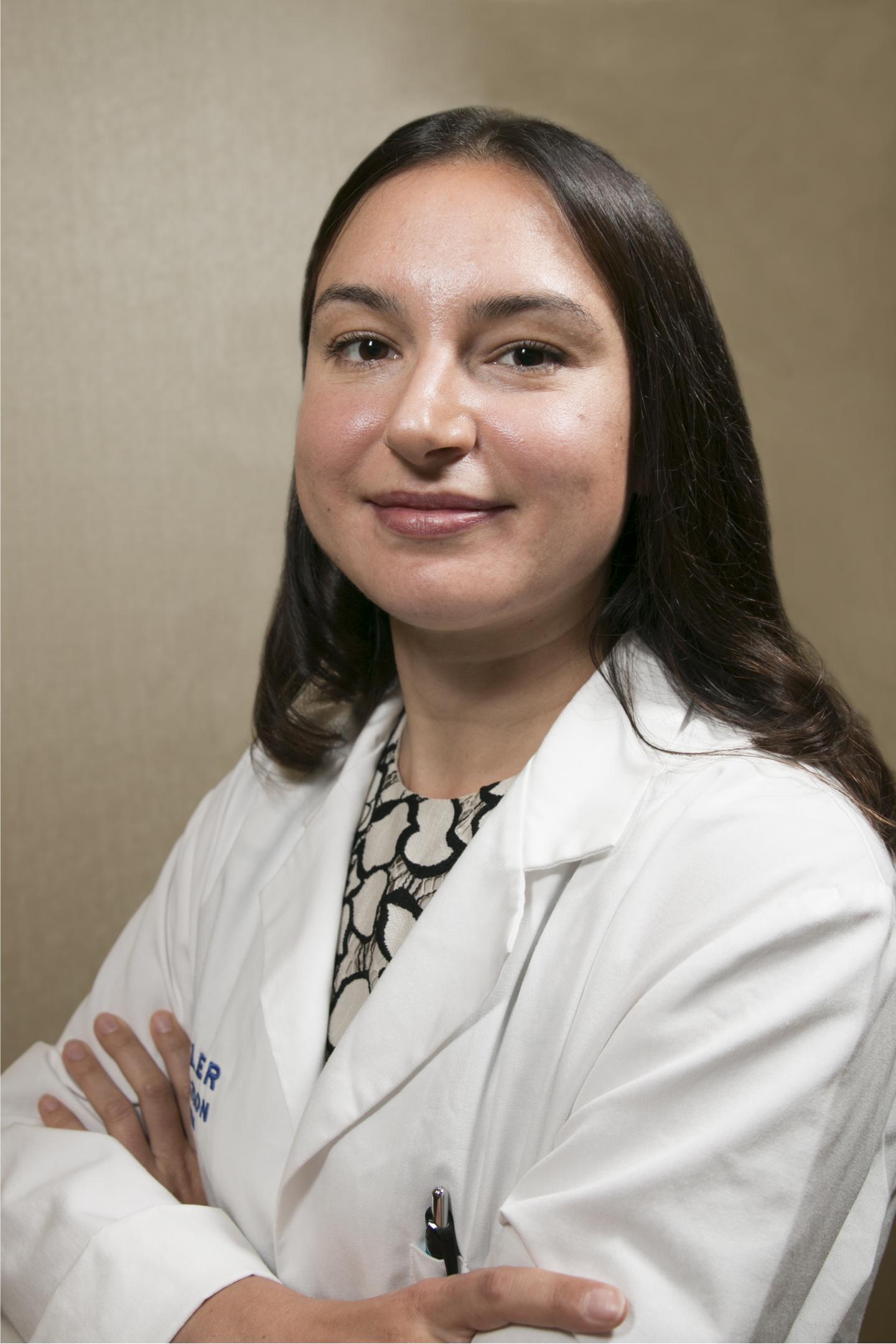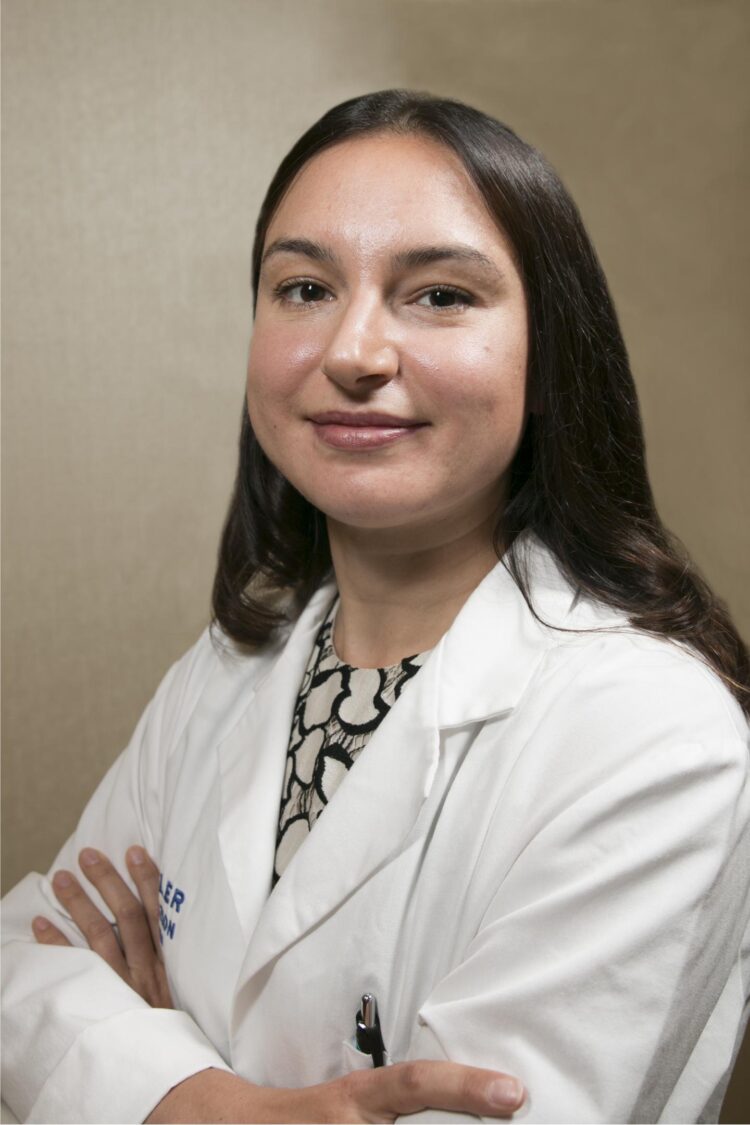Support from the Mabel H. Flory Charitable Trust grant advances novel reading research for stroke survivors at Kessler Foundation

Credit: Kessler Foundation
East Hanover, N.J. December 1, 2020 – Olga Boukrina, PhD, research scientist in the Center for Stroke Rehabilitation Research at Kessler Foundation, received a $10,000 grant from the Mabel H. Flory Charitable Trust for the study, “Personalized Treatment for Aphasia.” The grant funds Dr. Boukrina’s ongoing research into reading deficits, their association with brain damage from stroke, and ways to address these deficits during rehabilitation. This is the eighth year the Flory Charitable Trust has funded Kessler Foundation’s research on aphasia after stroke, bringing the Trust’s total funding for this important line of research to $80,000.
Reading deficits, an understudied area of research, remain a significant barrier to recovery after stroke. “Support from the Flory Trust has allowed us to address a major barrier to early intervention: the difficulty in identifying reading problems while a stroke survivor is hospitalized,” said Dr. Boukrina. “Because almost every stroke survivor in the US has a brain scan carefully inspected by specialists, we are working to identify markers that will help clinicians identify patients at risk for reading deficits early in their rehabilitative care.”
Working closely with colleagues at Kessler Institute for Rehabilitation, she identifies potential research participants with unique deficits in processing word appearance (orthography), word sound (phonology), or word meaning (semantics). Dr. Boukrina has leveraged the Flory Trust pilot funding to incorporate the latest neuroimaging techniques into her plans to develop a comprehensive therapeutic approach to stroke-related reading deficits. The Rocco Ortenzio Neuroimaging Center at Kessler Foundation provides unique resources for studying brain structure and activity, enabling researchers to explore the mechanisms that underlie hidden disabilities such as reading deficits, and increase the pace of discovery.
Learn about ongoing studies in rehab research for stroke, brain injury, multiple sclerosis, spinal cord injury and other disabling conditions.
https:/
###
Resources:
Boukrina O, Barrett AM, Graves WW. Cerebral perfusion of the left reading network predicts recovery of reading in subacute to chronic stroke. Hum Brain Mapp. 2019;40(18):5301-5314.
doi:10.1002/hbm.24773
Boukrina O, Barrett AM, Alexander EJ, Yao B, Graves WW. Neurally dissociable cognitive components of reading deficits in subacute stroke. Front Hum Neurosci. 2015; 9: 298. doi: 10.3389/fnhum.2015.00298
Dr. Boukrina discusses her research in this Expert Interview podcast:
https:/
About Stroke Rehabilitation Research at Kessler Foundation
Research studies span all domains of post-stroke dysfunction, including cognitive deficits and mobility impairment. Cognitive research emphasizes hidden disabilities after stroke, including disabilities of functional vision (spatial bias and spatial neglect) and reading deficits. Mobility research, in partnership with the Center for Mobility and Rehabilitation Engineering Research, centers on the application of new technologies for rehabilitation of upper and lower extremity motor impairments. Stroke research receives funding from the National Institute on Disability Independent Living and Rehabilitation Research, Department of Defense; the National Institutes of Health/NICHD/NCMRR; New Jersey Commission on Brain Injury Research, Mabel H. Flory Charitable Trust; the Healthcare Foundation of New Jersey; the Wallerstein Foundation for Geriatric Improvement; and Kessler Foundation. Scientists have faculty appointments at Rutgers New Jersey Medical School.
About Kessler Foundation
Kessler Foundation, a major nonprofit organization in the field of disability, is a global leader in rehabilitation research that seeks to improve cognition, mobility and long-term outcomes, including employment, for people with neurological disabilities caused by diseases and injuries of the brain and spinal cord. Kessler Foundation leads the nation in funding innovative programs that expand opportunities for employment for people with disabilities. For more information, visit KesslerFoundation.org.
Learn more by visiting http://www.
Stay Connected
Twitter | http://www.
Facebook | http://www.
YouTube | http://www.
Instagram | http://www.
iTunes & SoundCloud | http://www.
Media Contact
Carolann Murphy
[email protected]





